Trump's supporters agree with most of his foreign policy statements, but some are less popular than others
Throughout his campaign, GOP frontrunner Donald Trump has made some statements about foreign policy that are unusual for a Republican. Do his supporters agree with him? The latest Economist/YouGov Poll attempted to find out.
Trump has claimed that he opposed the 2003 war in Iraq before it began, expressed serious doubts about the value of NATO membership for the United States, in the same interview questioned an activist foreign policy, and would close U.S. borders against Muslim immigrants. Is he reflecting his supporters? Only sometimes.
Most Trump supporters clearly side with their candidate when it comes to their opinion of NATO. By five to three, they have an unfavorable opinion of that international organization, a somewhat more negative view than Republican primary voters in general. But like other Republicans, they aren’t sure the U.S. should withdraw from NATO.
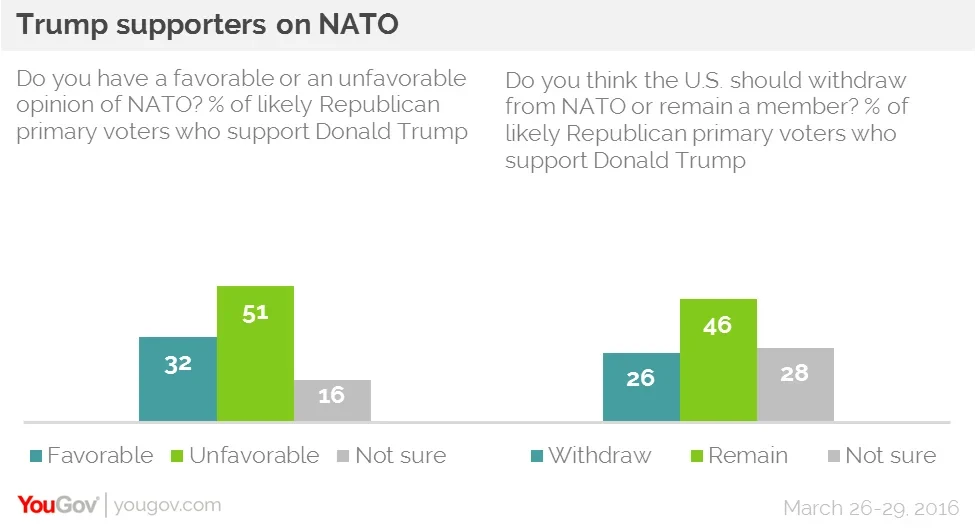
Democrats, on the other hand, are NATO fans.
The question of foreign policy activism evokes different answers from Trump voters depending on the situation. Those who favor Trump are willing to support specific foreign military actions – but only in certain circumstances, not in general. They are less likely than other Republican voters to credit the U.S. with a responsibility to take military or humanitarian actions on the global scene. Trump supporters are less likely than supporters of the other two remaining Republican candidates to believe the U.S. has a responsibility to give military assistance in trouble spots around the world when it is asked to do so by its allies. In fact, they give answers to this question very similar to those given by Democratic voters who favor Hillary Clinton.
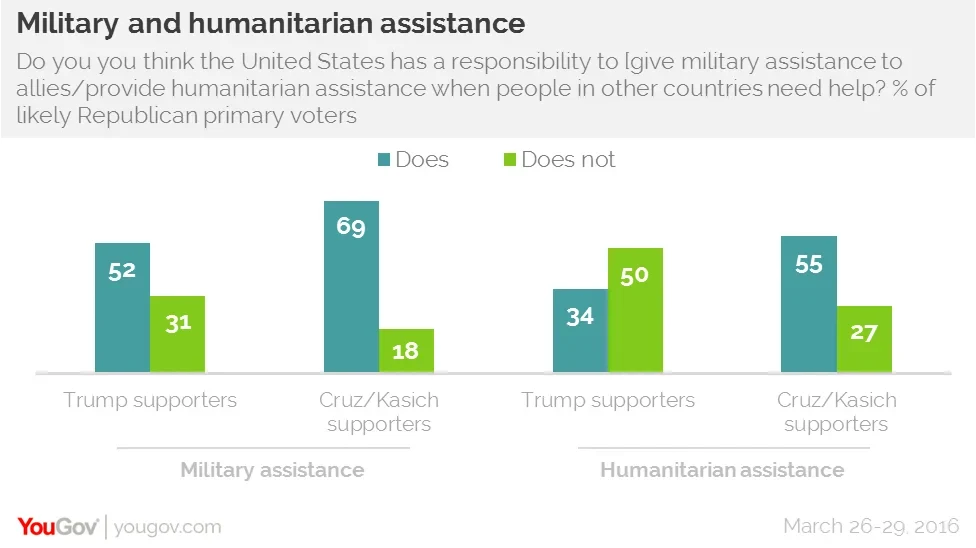
However, when it comes to actions – including military actions – against terrorism, Trump’s supporters are more bellicose. Three in four are willing to send ground troops to Iraq and Syria to fight ISIS. That’s something Democratic voters oppose.
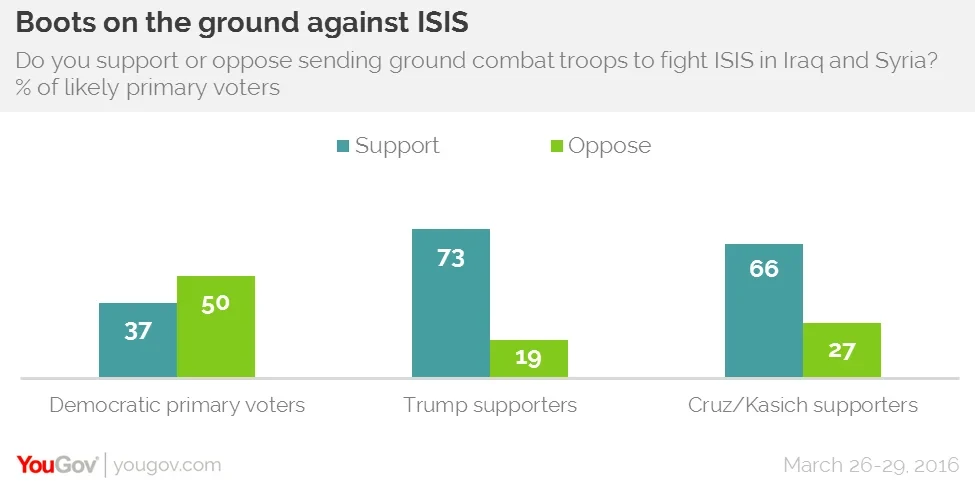
Trump supporters express more concern than other voters – Republican or Democrat -- about the threat of terrorism and they are more attentive to the problem. A majority of Trump voters – more than any other group – say they were following the recent terrorist attacks in Belgium “very closely.” More critical perhaps, 58% of them believe a terrorist attack in the United States in the next 12 months is “very likely,” far more than the 34% of the public overall who do.
42% name either terrorism or immigration as the country’s most important issue. So Trump’s position opposing Muslims traveling to the United States gets the support of 90% of his voters (and that position is also shared by 78% of all Republican primary voters).
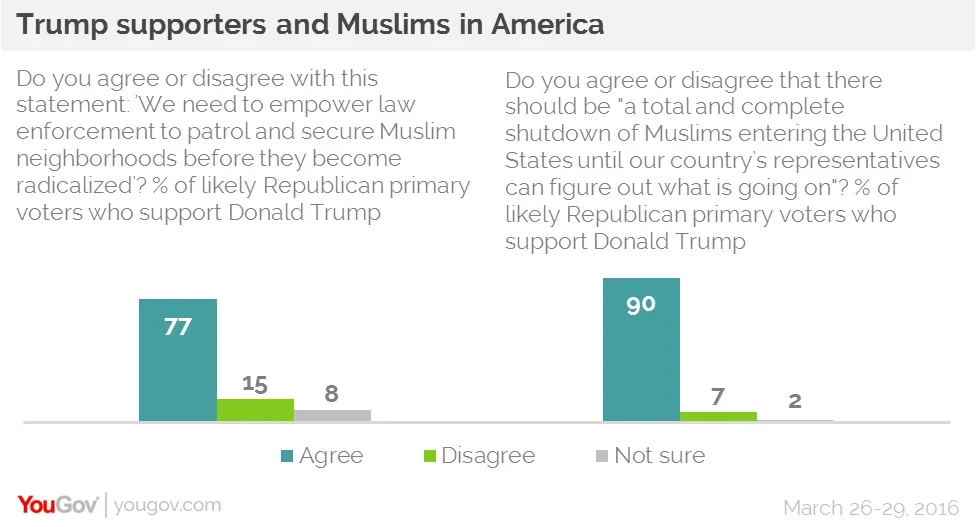
Trump’s voters even give the most support to a proposal made by his closest competitor, Texas Senator Ted Cruz, to “empower law enforcement to patrol and secure Muslim neighborhoods before they become radicalized.” 77% of Trump voters support that.
Iraq divides the two parties, and Trump’s supporters side more with their party, and not so much with their candidate. Democrats oppose the Iraq War in part because it was the action of a Republican President, George W. Bush. Republicans, whether they support or oppose Trump for their party’s presidential to nomination, remember supporting the war. Trump’s anti-Iraq War position in 2003 gets only limited support from his own voters. And when asked their opinion about the war now, Republican primary voters are closely divided, with Trump’s voters only slightly less positive than other candidate supporters. However, Trump supporters are the most likely group to take the position that once in, you stay in. Three in four of them think it was a mistake to withdraw troops from Iraq in 2011.
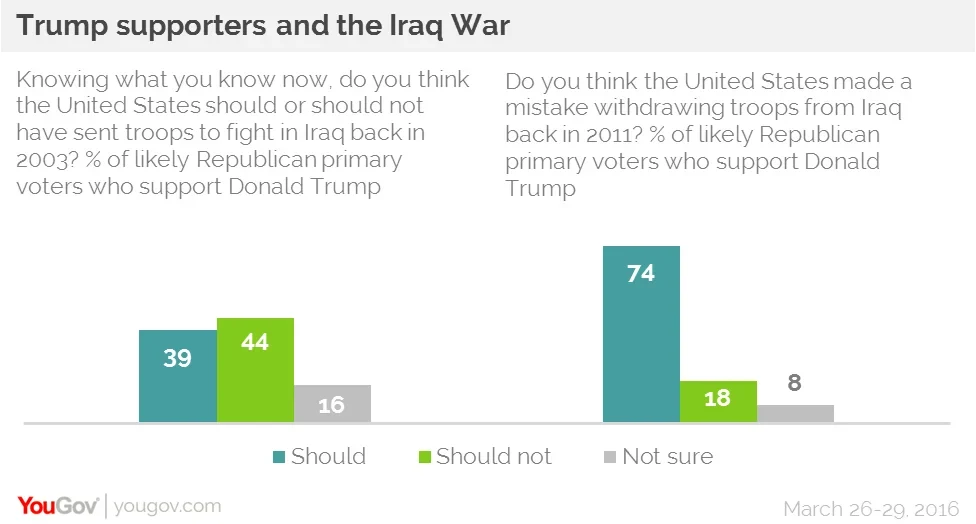
Trump has indicated his support for President Obama’s opening the door to normal relations with Cuba. But that position doesn’t win him any credit with his base. Like other Republican primary voters, they oppose diplomatic relations with Cuba.
See the Economist/YouGov results
Economist/YouGov poll archives can be found here.









